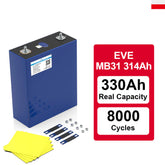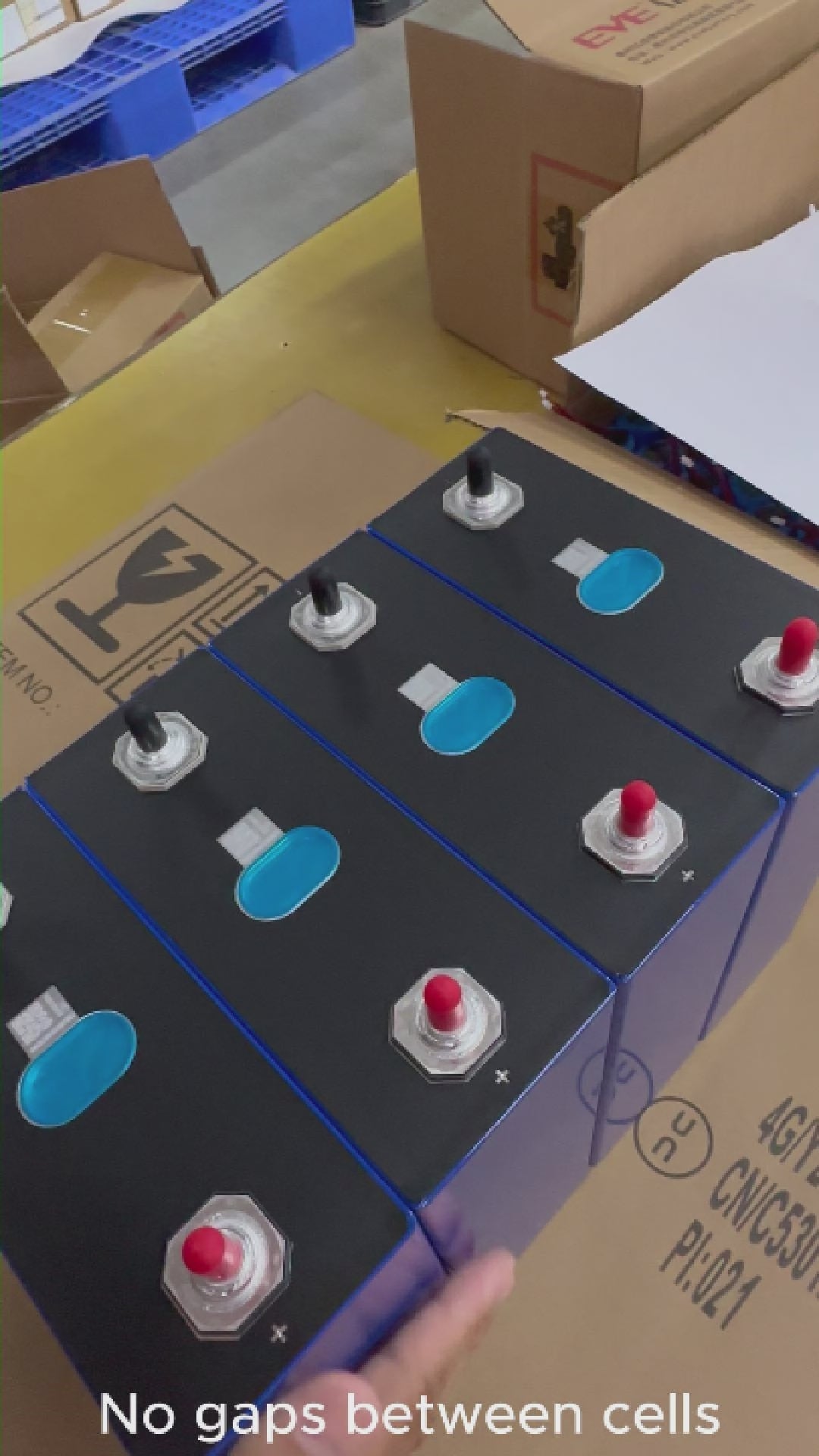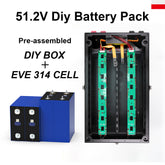Comprender la vida útil de las baterías de iones de litio de 48 V
En cuanto a soluciones de almacenamiento de energía, las baterías de iones de litio de 48 V se han convertido en una opción popular en diversas industrias, como vehículos eléctricos, sistemas de energía renovable y sistemas de alimentación ininterrumpida (SAI). Comprender la vida útil de estas baterías es crucial tanto para consumidores como para empresas para maximizar su retorno de la inversión y garantizar un rendimiento óptimo a largo plazo. En este artículo, exploraremos los factores que afectan la longevidad de las baterías de iones de litio de 48 V, cómo prolongar su vida útil y responderemos preguntas frecuentes sobre su uso.
- ¿Qué son las baterías de iones de litio de 48 V?
- Factores que afectan la vida útil de las baterías de iones de litio de 48 V
- Cómo prolongar la vida útil de las baterías de iones de litio de 48 V
- Conceptos erróneos comunes sobre las baterías de iones de litio de 48 V
¿Qué son las baterías de iones de litio de 48 V?
Las baterías de iones de litio de 48 V son dispositivos de almacenamiento de energía recargables que utilizan la química de iones de litio para almacenar energía eléctrica. Se suelen utilizar en aplicaciones que requieren media tensión, como sistemas de energía solar, bicicletas eléctricas y sistemas de almacenamiento de energía conectados a la red eléctrica. La configuración de 48 V ofrece un buen equilibrio entre capacidad y rendimiento energético, lo que la hace ideal para estas aplicaciones de alto consumo energético.
Las baterías de iones de litio son conocidas por su alta densidad energética, mayor vida útil y capacidad de carga y descarga más eficiente que otras baterías con químicas diferentes. Estas ventajas hacen que las baterías de iones de litio de 48 V sean una opción popular tanto para aplicaciones comerciales como residenciales.
>>Ver también ¿Se considera que 12,3 voltios es una batería saludable?
Factores que afectan la vida útil de las baterías de iones de litio de 48 V
La vida útil de cualquier batería depende de varios factores, y las baterías de iones de litio de 48 V no son la excepción. Estos son los principales factores que pueden influir en la longevidad de estas baterías:
- Profundidad de descarga (DoD)
Uno de los factores más importantes que afectan la vida útil de las baterías de iones de litio de 48 V es la profundidad de descarga (DoD). La DoD se refiere a la cantidad de carga que se utiliza antes de recargarse. Cuanto más profunda sea la descarga, mayor será la tensión sobre la batería, lo que puede acelerar su degradación con el tiempo.
Por ejemplo, descargar regularmente una batería al 80 % de su capacidad total reducirá significativamente su vida útil en comparación con descargarla al 50 %. Los fabricantes suelen recomendar mantener la DoD por debajo del 80 % para una longevidad óptima.
- Prácticas de carga
La forma de cargar su batería de iones de litio de 48 V también puede ser crucial en su vida útil. Debe evitarse la sobrecarga y la carga insuficiente, ya que ambas pueden dañar las celdas de la batería. Las baterías de iones de litio están diseñadas para cargarse dentro de un rango de voltaje específico, generalmente entre 3,0 V y 4,2 V por celda. Cargar más allá de este rango puede provocar sobrecalentamiento, mientras que cargar demasiado poco puede impedir que la batería alcance su máximo potencial.
Es fundamental usar un cargador de alta calidad diseñado específicamente para su tipo de batería. Muchos cargadores modernos incorporan funciones que evitan la sobrecarga y optimizan el ciclo de carga, lo que ayuda a prolongar la vida útil de la batería.
- Temperatura
La temperatura a la que se almacenan y utilizan las baterías de iones de litio de 48 V es otro factor crítico que influye en su vida útil. Las temperaturas extremas, tanto altas como bajas, pueden acelerar el deterioro de la batería. Las altas temperaturas pueden provocar la degradación del electrolito de la batería, mientras que las bajas temperaturas pueden reducir su capacidad y rendimiento.
Idealmente, las baterías de iones de litio de 48 V deben almacenarse en un lugar fresco y seco. La temperatura óptima de funcionamiento para la mayoría de las baterías de iones de litio se encuentra entre 20 °C y 25 °C (68 °F y 77 °F). Al utilizar las baterías en condiciones extremas, es posible que necesite sistemas de gestión de temperatura para mantenerlas dentro del rango ideal.
- Recuento cíclico
El número de ciclos se refiere al número de ciclos de carga y descarga que experimenta una batería. Cada ciclo reduce ligeramente la capacidad total de la batería. Sin embargo, las baterías de iones de litio de 48 V están diseñadas para soportar un alto número de ciclos. En promedio, estas baterías pueden durar entre 1000 y 3000 ciclos, dependiendo de su calidad y uso.
Un ciclo se define como una descarga y recarga completas. Si solo se utiliza una parte de la carga de la batería, podrían necesitarse varios ciclos parciales para completar un ciclo completo. Descargar y recargar regularmente una batería entre el 20 % y el 80 % puede reducir significativamente el número de ciclos y prolongar su vida útil.
Cómo prolongar la vida útil de las baterías de iones de litio de 48 V
Existen varias prácticas recomendadas que pueden ayudar a prolongar la vida útil de sus baterías de iones de litio de 48 V y garantizar que sigan ofreciendo un servicio fiable a lo largo del tiempo. Aquí tiene algunos consejos:
- Evite la descarga profunda
Como se mencionó anteriormente, las descargas profundas someten a una carga considerable a las baterías de iones de litio. Al mantener la profundidad de descarga por debajo del 80 % y recargar la batería regularmente, se minimiza el desgaste de las celdas. Muchos sistemas de gestión de baterías (BMS) incluyen funciones que ayudan a gestionar la profundidad de descarga y optimizar los ciclos de carga, garantizando así el máximo rendimiento de la batería.
- Mantener condiciones de almacenamiento adecuadas
Si necesita almacenar su batería de iones de litio de 48 V durante un período prolongado, asegúrese de mantenerla en un lugar fresco y seco, alejada de la luz solar directa y del calor excesivo. Además, es importante almacenar la batería con una carga parcial, generalmente entre el 40 % y el 60 %. Almacenar una batería completamente cargada o completamente descargada puede causar daños irreversibles a las celdas.
- Utilice cargadores de calidad
Usar un cargador de alta calidad recomendado por el fabricante puede marcar una diferencia significativa en la vida útil de su batería de iones de litio de 48 V. Un cargador de calidad garantizará que la batería se cargue dentro del rango de voltaje correcto y ayudará a evitar problemas como sobrecarga o sobrecalentamiento.
- Monitorear el estado de la batería
Muchas baterías modernas de iones de litio de 48 V incorporan sistemas de gestión de baterías (BMS) que permiten a los usuarios supervisar el estado de la batería en tiempo real. Estos sistemas monitorizan parámetros como el voltaje, la temperatura y el estado de carga (SOC) para garantizar el óptimo funcionamiento de la batería. Revisar estas métricas periódicamente puede ayudarle a detectar cualquier problema a tiempo y a tomar medidas correctivas antes de que provoque un fallo prematuro de la batería.
- Evite las altas temperaturas
Si vive en una región con temperaturas ambiente altas, es fundamental tomar precauciones adicionales para evitar que su batería de iones de litio de 48 V se sobrecaliente. Usar sistemas de refrigeración o colocar la batería en un área bien ventilada puede ayudar a regular su temperatura y prevenir daños. Algunas baterías de iones de litio de 48 V están diseñadas con soluciones de refrigeración integradas, pero aun así es importante garantizar una ventilación adecuada alrededor de la batería.
>>Vea también Todo lo que necesita saber sobre la batería AGM del grupo 40R para su automóvil
Conceptos erróneos comunes sobre las baterías de iones de litio de 48 V
A pesar de su popularidad, aún existen varios mitos sobre las baterías de iones de litio de 48 V. Abordemos algunos de los más comunes:
- Las baterías de iones de litio son siempre seguras
Si bien las baterías de iones de litio de 48 V suelen ser seguras si se usan correctamente, no son inmunes a las fallas. El manejo inadecuado, la carga incorrecta o la exposición a temperaturas extremas pueden provocar fallas o incluso incendiarse en casos excepcionales. Siga siempre las instrucciones del fabricante y utilice accesorios de alta calidad para garantizar un funcionamiento seguro.
- Las baterías de iones de litio no necesitan mantenimiento
Otro error común es creer que las baterías de iones de litio no requieren mantenimiento. Si bien no requieren un mantenimiento regular como las baterías de plomo-ácido, es importante supervisar su rendimiento y detectar cualquier signo de degradación. Si observa hinchazón, fugas o cambios en la capacidad, es fundamental abordar estos problemas de inmediato.
- Las baterías más caras duran más
El precio no siempre es un indicador de la longevidad de la batería. Si bien las baterías de iones de litio de 48 V de gama alta pueden ofrecer un mejor rendimiento y funciones más avanzadas, la vida útil de una batería depende en gran medida de factores como los patrones de uso, las prácticas de carga y las condiciones ambientales.
Comprender la vida útil de las baterías de iones de litio de 48 V es crucial para quienes dependen de ellas para el almacenamiento de energía o para vehículos eléctricos. Al cuidar adecuadamente su batería y seguir las mejores prácticas, puede prolongar significativamente su vida útil y maximizar su inversión. La supervisión regular, las prácticas óptimas de carga y las condiciones de almacenamiento adecuadas garantizarán que su batería de iones de litio de 48 V siga funcionando a su máximo rendimiento durante años.
En conclusión, las baterías de iones de litio de 48 V ofrecen una solución de almacenamiento de energía fiable, eficiente y duradera. Con el cuidado adecuado, estas baterías pueden ofrecer años de servicio confiable, lo que las convierte en una excelente opción tanto para aplicaciones residenciales como comerciales.
























Leave a comment
All blog comments are checked prior to publishing